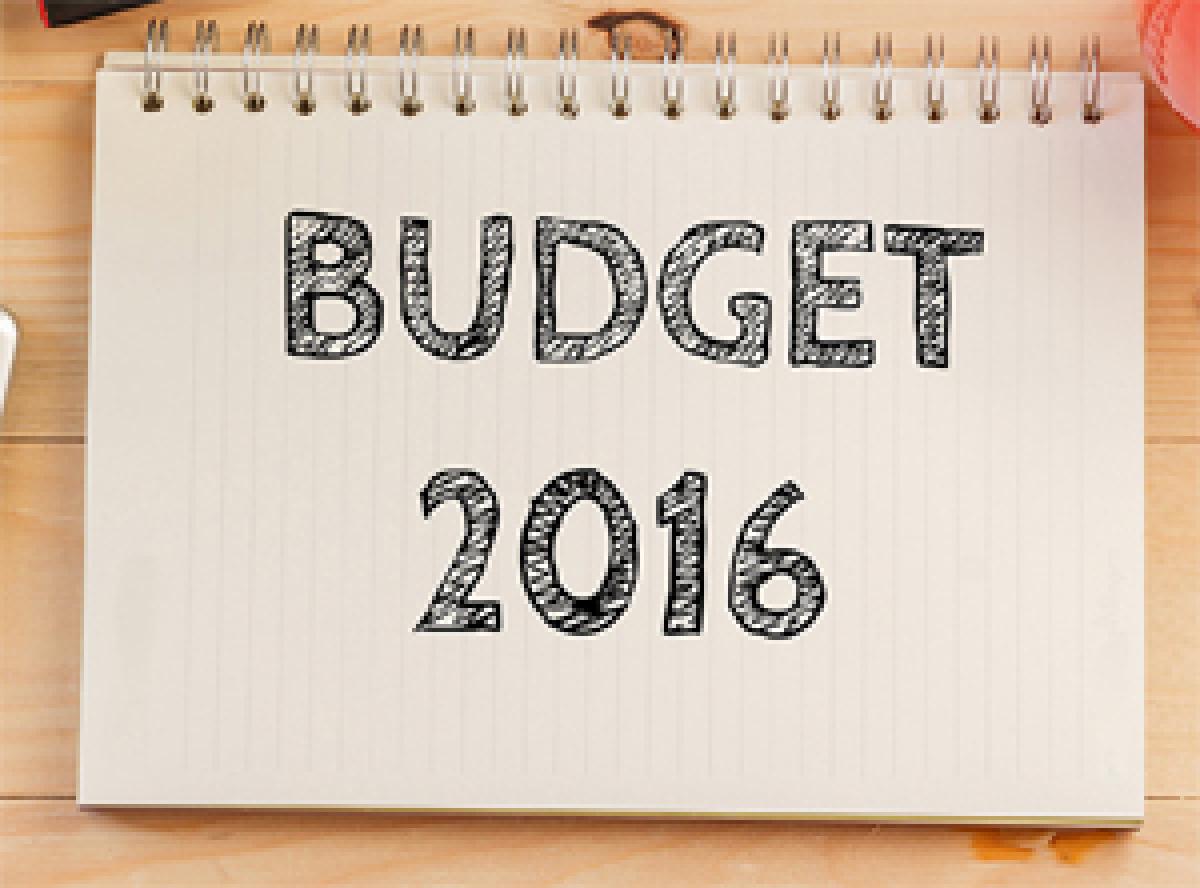Live
- Chanchalguda Jail Officials Say They Haven't Received Bail Papers Yet, Allu Arjun May Stay in Jail Tonight
- BJP leaders present evidence of illegal voters in Delhi, urge EC for swift action
- Exams will not be cancelled: BPSC chairman
- Nagesh Trophy: Karnataka, T.N win in Group A; Bihar, Rajasthan triumph in Group B
- YS Jagan condemns the arrest of Allu Arjun
- Economic and digital corridors to maritime connectivity, India and Italy building vision for future, says Italian Ambassador
- SMAT 2024: Patidar's heroics guide Madhya Pradesh to final after 13 years
- CCPA issues notices to 17 entities for violating direct selling rules
- Mamata expresses satisfaction over speedy conviction in minor girl rape-murder case
- Transparent Survey Process for Indiramma Housing Scheme Directed by District Collector
Just In

Ever since then Finance Minister Shan Mukhan Chitty presented India\'s first budget in 1947, the event has been eagerly awaited as the first big-ticket political event of the year.
A dream budget is one that can be implemented. At the end of the day, a budget and its implementation need to be seen as setting the tone for inclusive growth in a country where the Mars mission and farmer suicides are a grim reality and take place simultaneously. Unless this is a collective end-objective, India will again represent the inability to deliver on aspirations
Ever since then Finance Minister Shan Mukhan Chitty presented India's first budget in 1947, the event has been eagerly awaited as the first big-ticket political event of the year. Consequently it should come as no surprise that even a fortnight after Arun Jaitley presented the budget for 2016-17, commentaries continue as to whether this was finally the long-awaited budget or whether it was devoid of the much-needed big bang
vision.
A budget is essentially a statement by the government of what its priorities are for the year. The budget document is, in other words, an allocation of funds and the sectors for which allocations have been made. Allocations are not, however, a sanction for expenditure.
Expenditure is incurred on the basis of prescribed administrative and financial procedures that need to pass audit scrutiny, failing which it becomes an audit objection and in the worse-case scenario, feature in the Comptroller and Auditor General's report, which is presented to parliament. To that extent, actual expenditure incurred usually falls below allocations because of reticence in giving approvals.
In short, will the central government spending for the financial year utilise the allocations or will funds lapse, as has been the case on innumerable occasions in the past with successive governments? Consider some allocations in the 2016 budget, for instance. Under the Accelerated Irrigation Benefit Programme [AIBP], Jaitley said that there were 89 pending projects and their completion would require Rs17,000 crore next year and Rs 86,500 crore in the next five years.
In parliament, he conveyed the government's commitment in ensuring 23 projects would be completed before the end of the financial year. It bears recalling that the majority of these projects have been languishing for years. What miracle wand will now see fast-tracking and thus, completion? Ensuring that the allocations go to the intended beneficiaries within the stipulated time frame will be the biggest challenge the central government would face.
Similarly, Prime Minister Narendra Modi's pledge to double the income of farmers by 2022 was rejected by his predecessor, Manmohan Singh, as being ‘an impossible dream,’ despite it being a big idea. Indeed, Modi himself indicated that the goal would be achieved only if the state governments gave priority to agriculture.
Then, consider the ease of doing business. At a talk recently delivered at the Mumbai campus of the SP Jain School of Global Management, the response of Mark Thirwell, Chief Economist with Austrade, in response to a query on how India was perceived by Australian companies, is worth recalling.
He said when Australian companies were asked to identify the top five exciting destinations in the world for investment, India would invariably feature. At the same time, if Australian companies operating abroad were asked which they felt were the top five most difficult places to do business, India would invariably feature! In other words, India represents a clear mismatch between expectation and delivery.
For transformative change to take place in the Indian economy, tough economic reforms are required. A pro-poor budget does not work without an economic liberalisation programme that attracts domestic and foreign investment coupled with expenditure in the social sector. Simultaneously, unless corruption is addressed, investors would not back the India story.
A dream budget is one that can be implemented. At the end of the day, a budget and its implementation need to be seen as setting the tone for inclusive growth in a country where the Mars mission and farmer suicides are a grim reality and take place simultaneously. Unless this is a collective end-objective, India will again represent the inability to deliver on aspirations. Yet again, the people would have lost.

© 2024 Hyderabad Media House Limited/The Hans India. All rights reserved. Powered by hocalwire.com







